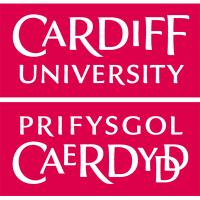German and Economics (BA)
Our aim at the School of Modern Languages and Cardiff Business School is to educate our students to become ‘global citizens’. By combining German and Economics you will gain a variety of transferable skills and knowledge beneficial to the world of employment, making you competitive and attractive in an increasingly global workforce and opening the doors to a variety of career paths.
The four-year degree in German and Economics combines the main elements (modules and teaching) of Economics with the study of German language and culture. The programme will equip you with a thorough grounding in the theory, concepts, principles and techniques of the core subject areas of the discipline: macroeconomics, microeconomics and quantitative analysis. It aims to provide you with knowledge of the workings of the UK economy and the ability to use that knowledge in a range of contexts. It also aims to provide a high level of competence in German and knowledge of the economy of Germany.
We will introduce you to the breadth and depth of economic analysis and offer you the opportunity to acquire knowledge and techniques across a number of specialised areas. Studying Economics provides a rigorous training that can be a useful foundation for future careers.
Through the study of German and Economics, the programme encourages a range of transferable discipline-specific and core skills that will be of value to you in future education and in your subsequent careers.
As the European Union develops, language skills are becoming increasingly attractive to employers. Studying Economics with German will help to prepare you for a career in Economics by providing you with a sound knowledge of the theories, concepts, principles and techniques of the discipline. The programme will also give you the added advantage of acquiring a language.
Each school involved in delivering the degree offers a challenging course of modules, supported by a friendly atmosphere and excellent staff-student relationships.
The first year provides the essential Economics and related modules that form the basis of a degree in Economics together with modules in German language and culture.
Year two develops from this base, giving equal weighting to Economics and German subjects. You will continue to focus on core modules in Economics, whilst the German language component focuses on your communication skills in the target language. In your second year of Economics you will study compulsory modules in both microeconomics and macroeconomics. You will choose your remaining 20 credits from a list of optional modules.
Your third year is spent in Germany studying modules to the equivalent of 120 credits in a range of accounting, business and economics subjects in German.
Germany is a major actor on the European and world stage, possessing a rich and sophisticated culture. German is one of the official working languages of the European Union and of the United Nations.
In year four you will take 60 credits of optional Economics related modules, combined with 30 credits in German language and 30 credits of German optional modules.
Overall, the degree in German and Economics prepares you for a career in Economics or international business with an ability to work in German as well as in English.
Campus Information
Cathays Park
The Cathays Park campus is where most of our Academic Schools are based. With wide tree-lined avenues and elegant Portland stone buildings, it's an inspiring place to study. With wide tree-lined avenues and elegant Portland stone buildings, it's an inspiring place to study.
Intakes
- Sep
Application Processing Time in Days: 30
Minimum English Language Requirements
| English Level Description | IELTS (1.0 -9.0) | TOEFL IBT (0-120) | TOEFL CBT (0-300) | PTE (10-90) | |
|---|---|---|---|---|---|
| Expert | 9 | 120 | 297-300 | 86-90 | |
| Very Good | 8.5 | 115-119 | 280-293 | 83-86 | |
| Very Good | 8 | 110-114 | 270-280 | 79-83 | |
| Good | 7.5 | 102-109 | 253-267 | 73-79 | |
| Good | 7 | 94-101 | 240-253 | 65-73 | |
| Competent | 6.5 | 79-93 | 213-233 | 58-65 | |
| Competent | 6 | 60-78 | 170-210 | 50-58 | |
| Modest | 5.5 | 46-59 | 133-210 | 43-50 | |
| Modest | 5 | 35-45 | 107-133 | 36-43 | |
| Limited | 4 | 32-34 | 97-103 | 30-36 | |
| Extremely Limited | < 4 | < 31 | < 93 | < 30 |
Job Opportunity Potential
Our courses prepare you for a professional career in a wide range of industries, business and the financial sector, or further study.
Engineers are in high demand, and thanks to our wide range of degree programmes, our graduates’ prospects are among the best in the UK.
On average,
over 95%
of our graduates are
in employment or further study
six months after graduating.
Our graduates go on to work in a range of areas, including industry, the public sector, the financial sector or academia. Some graduate destinations include:
Supplementing your studies
We offer students the option of taking a Year in Industry after their second year of study, which is spent in a professional workplace gaining hands-on experience. This experience can simultaneously improve students’ confidence and employment prospects.
Our MEng (Hons) programmes also have the option of a Year in Europe, which is a year spent at an institution in France, Germany or Spain, after the third year of study. This is a chance not only for students to broaden their personal horizons, but also to develop further academic skills.
Links with industry
Students who are not on the Year in Industry scheme still benefit from industrial input in modules across all engineering disciplines. School-wide project modules are supported by industrial collaboration with a number of companies, including Flintec, Ove Arup and Partners International, Atkins, GL Garrard Hassan, BAE Systems, EADS, and Babcock Marine.
In the waste management, recycling, and energy fields there is significant input from research contracts with companies such as Rolls Royce, EoN, Tata Steel, and Stork Technical Services. Inputs are also received from companies such as Tidal Energy Ltd (TEL), Marine Current Turbines (part of Siemens), Bosch, ANSYS and Mabey Bridge.
In environmental and water engineering, presentations are given by industrially sponsored lecturers from CH2MHILL and Lusas. Direct industrial input also comes from companies including Newport Galvanisers (a subsidiary of Wedge Galvanisers), GBCard and Partners, Jacobs Engineering, Capita Symonds, and Mott-MacDonald.
Extra-curricular opportunities
In today's competitive graduate job market, we recognise that students are always looking for ways to make them stand out to prospective employers. Each year, our students have the opportunity to get involved with some really exciting projects.
Aside from this, there are many extra-curricular opportunities, both social and serious, organised through the School, the University or the Students’ Union.
PSW Opportunity
2 Years PSW
Admission Requirement / Eligibility Criteria
GCSE
Grade C or grade 4 in GCSE English Language.
IELTS (academic)
At least 6.5 overall with a minimum of 5.5 in each subskill.
TOEFL iBT
At least 90 overall with minimum scores of 17 for writing, 17 for listening, 18 for reading and 20 for speaking.
PTE Academic
At least 62 overall with a minimum of 51 in all communicative skills.
Trinity ISE II/III
II: at least two Distinctions and two Merits.
III: at least a Pass in all components.
Indian Standard XII Tamil Nadu Board of Secondary Education Core English
140 out of 200
140 out of 200
Not accepted
Indian Standard XII Core English
70%
- Course Code: RL21
- Course Type: Full Time
- Course Level: Bachelors/UG Degree
- Duration: 04 Year
-
Total Tuition Fee:
73800 GBP
Annual Cost of Living: 9207 GBP
Application Fee: N/A
Similar Programs
- Welsh and the Professional Workplace (BA) at Cardiff University
- Welsh and Spanish (BA) at Cardiff University
- Welsh and Religious Studies (BA) at Cardiff University
- Welsh and Philosophy (BA) at Cardiff University
- Welsh and Italian (BA) at Cardiff University
- Welsh and French (BA) at Cardiff University

